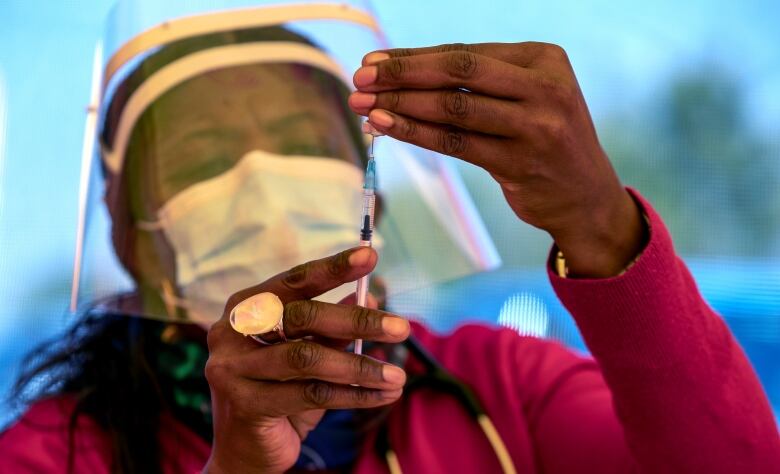South African scientists detect new COVID-19 variant of concern
World Health Organization has named the B.1.1.529 variant 'omicron'

The European Union's executive said Friday it wants to stop air travel from southern Africa to counter the spread of a new COVID-19 variant of concern.
EU Commission President Ursula von der Leyen said in a statement that she "proposes, in close coordination with the member states, to activate the emergency brake to stop air travel from the southern African region."
On Friday, the World Health Organization (WHO)declareda new coronavirus variant detected in South Africa a "variant of concern" and named it omicron. WHOuses the Greek alphabet to name variants of concern and variants of interest.
Scientists say the omicron variantis a concern because of its high number of mutations. They also believe it may be behind the rapid spread of COVID-19 amongyoung people in Gauteng, South Africa'smost populous province.
Only about 24 per cent of South Africa's population has been vaccinated against COVID-19, according to the Johns Hopkins coronavirus research centre.
A fourth spike of the coronavirus is hitting the 27-nation EU especially badly, with governments scrambling to tighten restrictions in an attempt to contain spread. The flight ban proposal came in the wake of similar action from Britain on Thursday.
The U.K. announced that it was banning flights from South Africa and five other southern African countries effective at noon on Friday, and that anyone who had recently arrived from those countries would be asked to take a coronavirus test.

U.K. Health Secretary Sajid Javid said there were concerns the new variant "may be more transmissible" than the dominant delta strain, and "the vaccines that we currently have may be less effective" against it.
The coronavirus evolves as it spreads and many new variants, including those with worrying mutations, often just die out. Scientists monitor for possible changes that could be more transmissible or deadly, but sorting out whether new variants will have a public health impact can take time.
Also identified as B.1.1.529, the new variant has also been found in Botswana and Hong Kong in travellers from South Africa, he said.
WHO says coronavirus infections jumped 11 per centin Europe in the past week, the only region in the world where COVID-19 continues to rise. WHO's Europe director, Dr. Hans Kluge, warned that without urgent measures, the continent could see another 700,000 deaths by the spring.
The EU's emergency brake mechanism has been set up to deal with such emergencies.
With files from CBC News













_(720p).jpg)


 OFFICIAL HD MUSIC VIDEO.jpg)
.jpg)



























































































